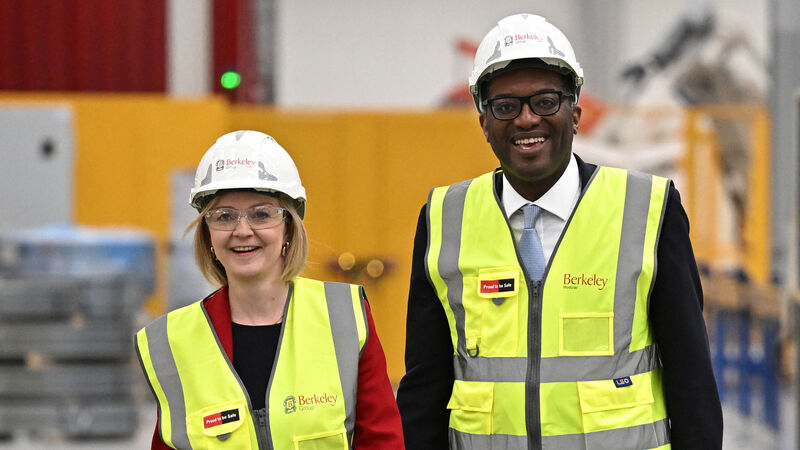British crisis puts spotlight on large Irish firms earning revenues in sterling

British prime minister Liz Truss and chancellor Kwasi Kwarteng.
Sterling fell again as the Bank of England was forced to step in and buy up British bonds amid an unfolding crisis sparked last Friday, when markets lost confidence in a mini-budget announced by the new UK government led by Liz Truss.
The intervention by the Bank of England was designed to stop the sharp sell-off of British bonds, which are known there as gilts, which sent British yields soaring and forced mortgage lenders there to withdraw home loan products.











